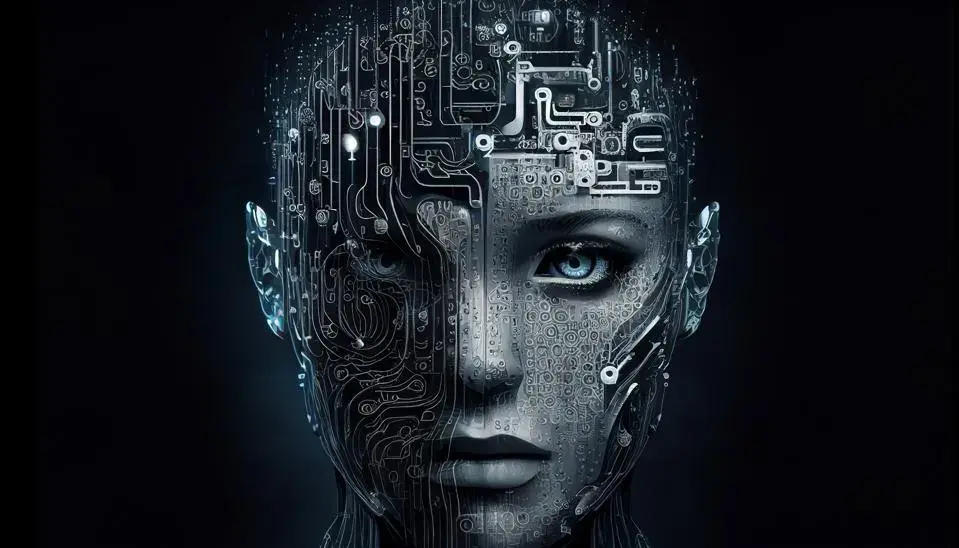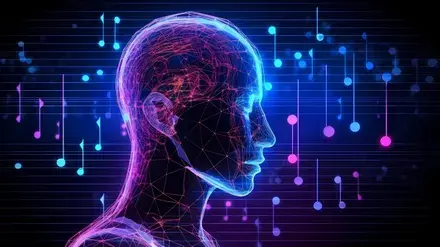Index
Introduction
AI will either save or destroy humanity. Here's why-
In the age of rapid technological advancements, the potential impacts of artificial intelligence on humanity hangs heavily. And naturally every mind is bugged by the question, “will AI be our saviour, guiding in a new era of progress and lifestyle, or will it be our downfall, leading to unknown consequences?”. This thought-provoking topic explores the dual nature of AI, examining both its potential to save the world and its capacity to destroy it. Let us together take a step in this journey and examine the complexities, dilemmas, ethical considerations, surrounding the role of AI. In this blog, we will see the pros and cons of how AI is shaping our future and the impact it will have on it. Let's see how it will help us and how it may harm us.
The Promises of Artificial Intelligence
 Artificial intelligence (AI) holds immense promise for transforming various aspects of our lives.From industrial use to daily lives, from education to healthcare, from technology to sports, AI has made everything easier and more efficient for human beings. AI is being used to automate repetitive tasks and complex processes, leading to increased efficiency and productivity. By freeing up human resources from time-consuming activities, AI empowers individuals and organizations to focus on higher-value tasks, providing innovation and growth. Not only does AI help with repetitive tasks but it can also help with potentially dangerous tasks, tasks that are better off done by machines than humans, automation can implemented not only in software industries but also in places where it is impossible for man to work, machines can work endlessly in conditions that are not fit for humans.
Artificial intelligence (AI) holds immense promise for transforming various aspects of our lives.From industrial use to daily lives, from education to healthcare, from technology to sports, AI has made everything easier and more efficient for human beings. AI is being used to automate repetitive tasks and complex processes, leading to increased efficiency and productivity. By freeing up human resources from time-consuming activities, AI empowers individuals and organizations to focus on higher-value tasks, providing innovation and growth. Not only does AI help with repetitive tasks but it can also help with potentially dangerous tasks, tasks that are better off done by machines than humans, automation can implemented not only in software industries but also in places where it is impossible for man to work, machines can work endlessly in conditions that are not fit for humans.
AI systems can analyze large amounts of data, identify patterns, and derive insights at a speed and scale beyond human capabilities. By providing data-driven recommendations and predictions, AI enables more informed decision-making across sectors such as healthcare, finance, and business, leading to better outcomes and resource optimization. Organizations that use data driven predictions have seen significant growth compared to those who don’t. This study of data helps organizations to study patterns and behaviours of their customers and make decisions in a more accurate manner. AI has the potential to revolutionize healthcare by enabling more accurate diagnostics, personalized treatments, and improved patient care. From analyzing medical images to predicting disease outcomes and optimizing healthcare workflows, AI-driven solutions can enhance medical decision-making and contribute to better health outcomes. Not only this, but AI can also be used in fields of medical research, helping scientists find ways to optimize their work and predict outcomes based on previous data, it will not only save time and resources but also help researchers narrow down their research and work on very specific parts of a problem.
Navigating the Challenges: The Perils of Artificial Intelligence
But letting AI reshape our future is a two way sword, it has both pros and cons, let us take a look into some potential challenges one might face.
The rise of AI and automation technologies raises concerns about potential job displacement. As AI systems automate tasks previously performed by humans, there is a risk of unemployment and economic disruption. People are concerned that they might lose their jobs to AI. Not only this, but AI may also be a leading culprit in changing the way potential companies hire their employees, affecting the future of many potential candidates that were previously fit for the job. Ensuring a smooth transition and providing retraining opportunities are crucial to mitigate the negative impact on the workforce. AI presents complex ethical challenges. Algorithmic bias, privacy concerns, and the potential for misuse of AI technologies are significant concerns. Ensuring transparency, fairness, and accountability in AI systems is essential to avoid exacerbating societal inequalities and to maintain trust in these technologies. Apart from system failures, there is a high risk of failure by the person handling the machines and automation. A small mistake from an untrained personnel might cause a domino effect and may affect the organization on various levels. AI systems become more integrated into critical infrastructure, they present potential security vulnerabilities. Hackers could exploit weaknesses in AI systems, leading to data breaches, unauthorized access, or manipulation of AI algorithms. Strong cybersecurity measures must be in place to protect against these risks. Over-reliance on AI systems can erode human autonomy and decision-making abilities. Handing over important tasks and decision-making processes entirely to AI without human oversight may lead to unintended consequences or loss of control. Striking a balance between AI assistance and human agency is vital to maintain human autonomy and responsibility.
unemployment and economic disruption. People are concerned that they might lose their jobs to AI. Not only this, but AI may also be a leading culprit in changing the way potential companies hire their employees, affecting the future of many potential candidates that were previously fit for the job. Ensuring a smooth transition and providing retraining opportunities are crucial to mitigate the negative impact on the workforce. AI presents complex ethical challenges. Algorithmic bias, privacy concerns, and the potential for misuse of AI technologies are significant concerns. Ensuring transparency, fairness, and accountability in AI systems is essential to avoid exacerbating societal inequalities and to maintain trust in these technologies. Apart from system failures, there is a high risk of failure by the person handling the machines and automation. A small mistake from an untrained personnel might cause a domino effect and may affect the organization on various levels. AI systems become more integrated into critical infrastructure, they present potential security vulnerabilities. Hackers could exploit weaknesses in AI systems, leading to data breaches, unauthorized access, or manipulation of AI algorithms. Strong cybersecurity measures must be in place to protect against these risks. Over-reliance on AI systems can erode human autonomy and decision-making abilities. Handing over important tasks and decision-making processes entirely to AI without human oversight may lead to unintended consequences or loss of control. Striking a balance between AI assistance and human agency is vital to maintain human autonomy and responsibility.
Conclusion
In conclusion, the promises and perils of artificial intelligence (AI) paint a complex and nuanced picture of its potential impact on humanity. The promises of AI, such as enhanced efficiency, improved decision-making, advanced personalization, breakthroughs in healthcare, and solving complex problems, offer a glimpse into a future filled with remarkable possibilities. AI has the potential to revolutionize industries, elevate human productivity, and contribute to positive societal advancements.
However, we must approach the perils of AI with caution and proactive measures. Job displacement, ethical dilemmas, unintended consequences, security risks, and the balance between human autonomy and dependency all demand careful consideration. It is imperative to address these challenges through thoughtful regulations, transparent and accountable practices, robust cybersecurity measures, and ongoing research and development.
To fully realize the promises of AI while mitigating its perils, collaboration among stakeholders is crucial. Researchers, policymakers, industry leaders, and society as a whole must engage in open dialogue and proactive decision-making. Ethical frameworks, responsible AI development practices, and continuous monitoring are essential to guide AI's evolution and ensure it aligns with our collective values and goals.
As we navigate the complex landscape of AI, we must remain cognizant of the potential benefits and risks it presents. By embracing a human-centric approach, prioritizing ethical considerations, and promoting responsible use, we can harness the transformative potential of AI while safeguarding against its perils. Together, we can shape an AI-driven future that empowers humanity and leads to positive progress for all.
